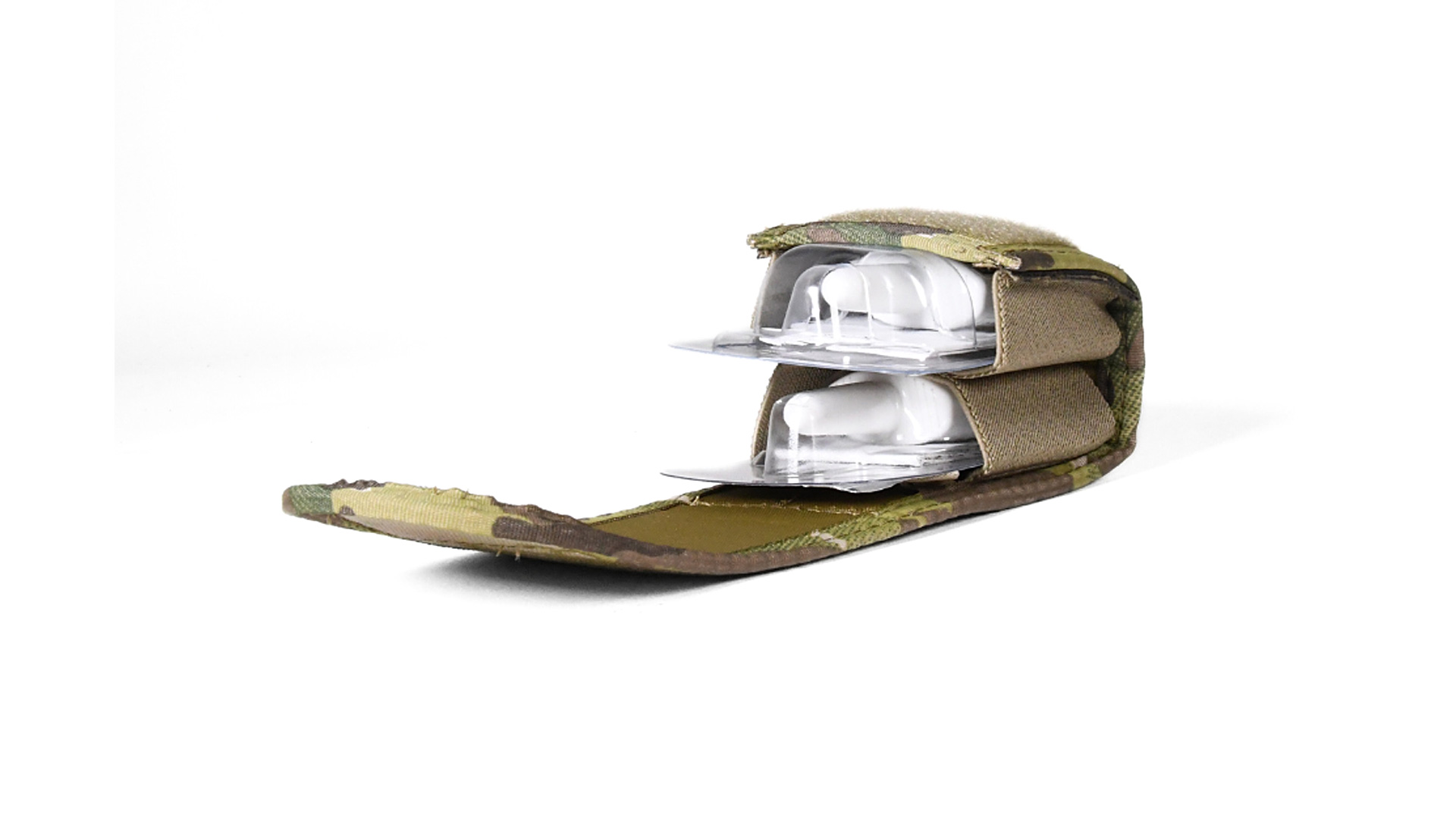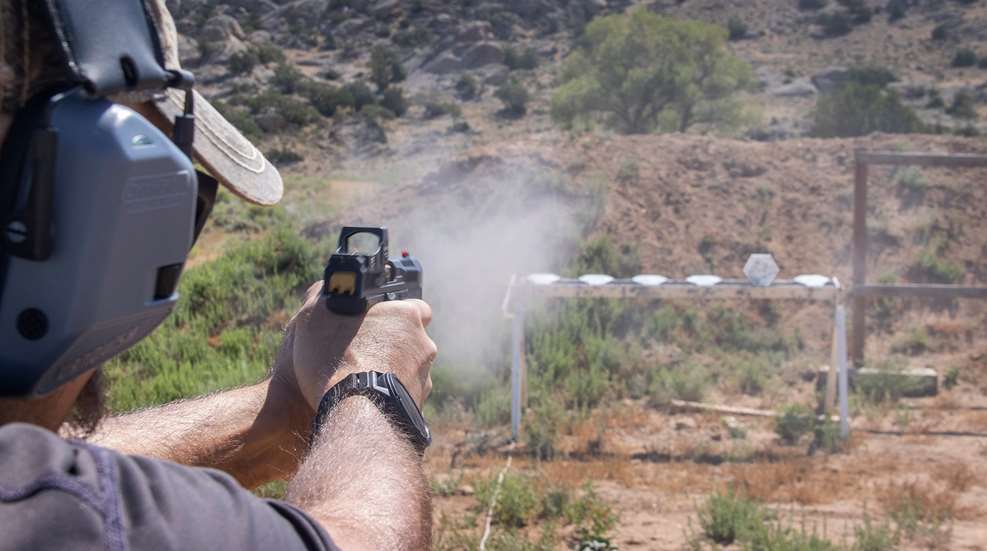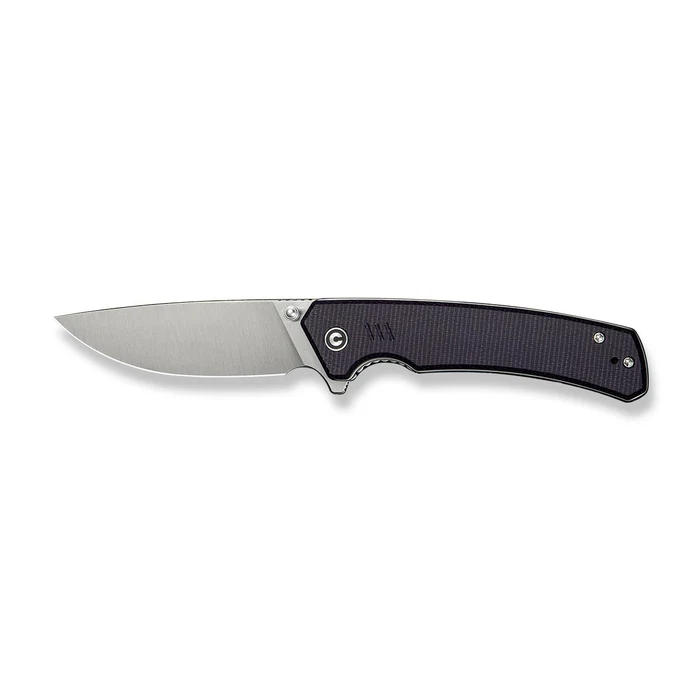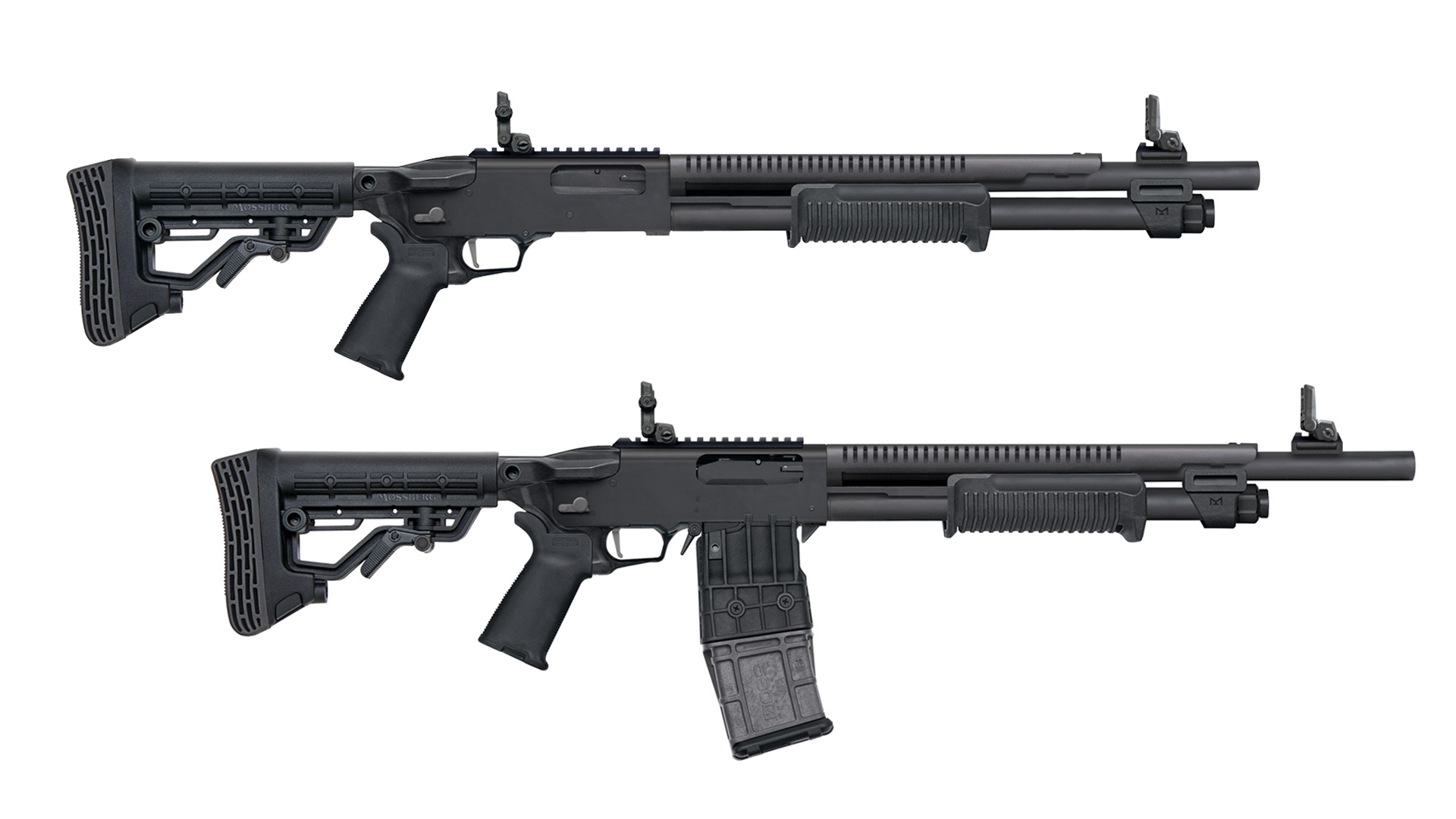The AR-15 is prolific, and it’s hard to find one that stands apart from a milieu of me-too designs often differentiated only by handguard, furniture and/or muzzle device. If you’re seeking a distinctive AR priced less than $800, the search is even more challenging, but as I discovered with the Mike-15 from Foxtrot Mike (FM) Products, not impossible.
The Mike-15 is an evolved AR-15 that corrects some of the design limitations of many ARs, delivers 1-MOA accuracy with the proper load and is priced at an extremely reasonable $799. You may have heard of it, since the Mike-15 was initially named the FM-15, but was re-branded to avoid a threatened—and arguably flimsy—trademark-infringement claim.
Like the Mike-15, Foxtrot Mike Products of Boise, ID, is palpably different from most gunmakers. The company is run by two mechanical engineers with a combined 30-plus years of design and manufacturing experience with products sold by some of the better names in the gun world—including Brownells and Wilson Combat. FM’s guiding philosophy is to deliver a technologically superior, high-quality rifle at a price most people can afford. In years of reading gunmaker mission statements, it is the first I’ve seen that pairs high quality with affordability for average Americans.
The Mike-15 is chambered in .223 Wylde, which allows both the 5.56 NATO and .223 Rem. cartridges to be safely, reliably and accurately used. It uses the direct-impingement gas system, whereby gas is bled off the barrel via a mid-length gas tube and directed rearward through the upper receiver by a small tube to the bolt carrier, causing it to move rearward and rotate the bolt out of engagement with the barrel extension to open the breech. This system essentially matches most direct-impingement AR-15s, but some parts are different due to the Mike-15’s “bufferless” design that places the recoil-spring assembly above and forward of the bolt, instead of inside the receiver extension (a.k.a. “buffer tube”) attached to the lower receiver on most ARs.
Both upper and lower receivers are milled aluminum, and the fit between them was solid, displaying minimal wobble • The Thril grip proved excellent in testing and can be swapped for an aftermarket option if so desired • An A2-style flash hider comes standard, but can be removed to add a muzzle brake or sound suppressor • Perhaps the most significant characteristic of the Mike-15 is its bufferless design, which is obvious when the stock is folded and no buffer tube is present. This allows the rifle to be fired with the stock folded • Another major difference between the Mike-15 and a standard AR is its side-mounted charging handle, which is non-reciprocating • The mil-spec trigger felt better than expected, breaking at less than 5.5 pounds • Included on the rifle is an ambidextrous safety lever, which is a welcome feature seldom found on factory carbines at the Mike-15’s price point • A full-length rail adorns the top of the rifle, allowing the shooter to mount virtually any optics configuration with ease.
The main benefit of a bufferless AR is the ability to use a side-folding stock, which can reduce the rifle’s overall length, making it easier to stow, yet still be capable of firing with the stock folded. This isn’t a novel idea, having first been used in the Olympic Arms OA-93 pistol and much later the piston-driven Rock River Arms LAR-PDS. That said, there aren’t many bufferless ARs in current production, and those chambered in 5.56 NATO cost far more than the Mike-15. As for the upper receiver, it has a 15.5-inch proprietary handguard with ample M-Lok slots. It can also be purchased separately with a rail adapter to mount a folding stock onto a non-Mike-15 lower receiver.
FM’s bufferless system uses two recoil springs that are nested together and surround the operating rod, which, when pulled rearward using the forward-mounted, non-reciprocating charging handle, retracts the bolt-carrier group. The charging handle is reversible to either side of the handguard. The “Slap Mod” handle is so named because when locked rearward, it can be slapped downward “H&K-style,” allowing the bolt to spring forward. Mike-15 rifles are also available with an angled charging handle, which can be oriented to face up or down.
 Both the upper and lower receivers are milled from 7000-series aluminum billets and the 16-inch, button-rifled barrel is made from 41V50 steel. It measures .625 inch in diameter ahead of the gas block and is fitted with an A2-style flash suppressor. The barrel, gas block, bolt-carrier assembly and fire-control parts are nitride finished, and the fire-control parts and bolt catch are mil-spec pattern, except for the polymer, ambidextrous safety levers. Contrary to what some online influencers claim, a mil-spec barrel can indeed be mounted without any problems.
Both the upper and lower receivers are milled from 7000-series aluminum billets and the 16-inch, button-rifled barrel is made from 41V50 steel. It measures .625 inch in diameter ahead of the gas block and is fitted with an A2-style flash suppressor. The barrel, gas block, bolt-carrier assembly and fire-control parts are nitride finished, and the fire-control parts and bolt catch are mil-spec pattern, except for the polymer, ambidextrous safety levers. Contrary to what some online influencers claim, a mil-spec barrel can indeed be mounted without any problems.
There are also less-apparent improvements over the typical AR. The handguard has an extended Picatinny rail, which mates with a corresponding slot in the upper receiver to ensure a tight fit and prevent twisting. The elongated barrel nut has a tapered collar that bears against a tapered section of the barrel, making alignment with the upper receiver more concentric than the mil-spec barrel nut. This yields a noticeable improvement in accuracy, according to the company. The barrel has wrench flats just behind the threaded muzzle to allow easier removal of the flash hider, and there is an index cut on the barrel to ensure proper alignment of the gas block with the barrel’s gas port. The gas key has a lug that engages the bolt carrier, augmenting the staked screws for attachment. A tensioning screw is added to the lower receiver, and it bears on the rear lug of the upper receiver to ensure a tight fit, while a replaceable, polymer shell deflector sits behind the ejection port.
The bolt is mil-spec pattern, but the extractor-retainer pin and firing pin have been modified on Gen 2 rifles to lessen the chance of a slam fire caused by a free-floating firing pin moving forward as the bolt chambers a round to impact the primer with sufficient force to set it off. The primer dimple you can sometimes see after extracting a live round from certain AR-15s is caused by this phenomenon, which the Gen 2 design prevents by adding a firing-pin spring. I’ve never witnessed an AR slam fire, but softer primers not set deeply enough into the primer pocket could theoretically create one. Adding the firing-pin spring requires the Gen 2 extractor pin to be narrowed in the middle. FM recommends replacing it after each extractor takedown or 1,000 to 2,000 rounds, and the company supplies two extra pins with the gun. The company also notes that the extractor still functions if the pin breaks in half, because it is held in place by the surrounding bolt carrier. If the Gen 2 system makes you apprehensive, the Mike-15 can be returned to a more traditional operating configuration by removing the firing-pin spring and using a standard extractor pin. A new version has a spring, but uses a standard extractor and firing pin and is expected to be released later this year.

M-Lok slots adorn the handguard, providing ample spots to mount accessories • A funneled magazine well helps make reloads faster and easier, particularly in low-light conditions • The Thril buttstock is adjustable to four length-of-pull distances and mounts to the FM Products’ proprietary folding mechanism, which can also accept aftermarket AR stocks • A well-designed rubber buttpad helps anchor the rifle in the shoulder, and the Thril stock also sports QD sling-mounting points • Disassembly is different from a standard AR owing to the location of the recoil-spring assembly and proprietary, precision-made bolt-carrier group.
The Mike-15 uses a proprietary stock which folds to the left. Folding/unfolding requires you to grasp the stock close to its hinge, then pull it upward and out of engagement with the receiver side of the hinge. It’s neither intuitive nor rapid, but FM Products sells a Picatinny-rail-receiver end cap to allow mounting a folding stock of your choice. Newer production models also have a staked buttstock castle nut using a Tango Uniform kit that makes staking far simpler and consistent than using an unguided punch.
Disassembly for cleaning starts with removing the upper receiver from the lower on an unloaded rifle using standard AR-style push pins. Removing the bolt carrier, however, requires a certain technique shown in FM Products’ instructional videos, along with safety glasses to avoid injury from spring-loaded parts that will inevitably escape your grasp. Takedown and reassembly also are best done indoors to avoid losing parts in the field.
The main benefit of a bufferless AR is the ability to use a side-folding stock, which can reduce the rifle’s overall length, making it easier to stow, yet still be capable of firing with the stock folded.
FM Products mentions that a 300-round break-in using brass-case ammo loaded to NATO spec is expected before functioning is flawless, but in testing, perfect reliability started much sooner, at round 129. Before that, there was a single misfire due to a light primer strike and the bolt consistently failed to lock rearward on an empty magazine. Otherwise, there were no other stoppages in my 500-round test. Moreover, there were no malfunctions using five different magazines ranging from a KCI steel-body unit to a vintage Ram-Line polymer model, though this test was limited to 15 rounds for each mag.
The Mike-15 was noticeably more pleasant to shoot than a typical AR-15. You don’t experience the grating sound of a moving buffer and spring transmitted through the stock to your auditory nerve, and the rifle’s recoil sensation is softer, possibly due to not being overgassed and running a bolt carrier weighing 4 ounces less than a standard version. Foxtrot Mike’s Paul Noonan explained that overgassed rifles are often the result of compromised manufacturing, where the gas-port size is larger than necessary to allow rifles with misaligned gas systems to cycle, but at the cost of more felt recoil and increased wear on certain parts. His approach, in contrast, was to add manufacturing steps to ensure that the gas block perfectly aligns with the barrel’s gas port and gas tube, and to inform buyers that a break-in period is expected as friction between parts lessens. A different set of recoil springs are available at no charge for those who wish to negate increased recoil caused by added back pressure when using a suppressor.

Weighing 6.25 pounds unloaded, the Mike-15 handles superbly for several reasons. The full-length, narrow-profile handguard is comfortable to grasp, and the funneled magazine well makes reloading in darkness or on the move easier. The robust folding stock locks open and into place solidly, the Thril grip has a comfortable palm swell and adequate texture and the large, side-mounted charging handle is quick to access and manipulate. The Thril four-position collapsible stock has two sockets for QD sling swivels and a non-slip rubber buttpad to keep the rifle from tumbling when leaned against a wall, but like most adjustable stocks, there’s a bit of wobble between the stock and the receiver extension tube that can be remedied by switching to the Rogers Super Stoc or Magpul CTR, each of which has a tensioning lever.
The Mike-15 ships in a cardboard box with only one magazine, but these inconsequential economies are overshadowed by its distinctive yet useful features and build quality underscored by tightly fitted receivers with matching anodized finish, metalwork nearly devoid of machine tool marks and a sturdy folding-stock mechanism. Moreover, this rifle’s performance and lifetime transferable warranty make it an exceptional value, especially for a folding-stock AR. My only issues are the plastic safety levers and the bolt carrier, which is not chrome lined where the bolt rotates. However, FM may be adding chrome to future carriers, and the levers can be easily changed to metal paddles.
Read the full article here












Leave a Reply